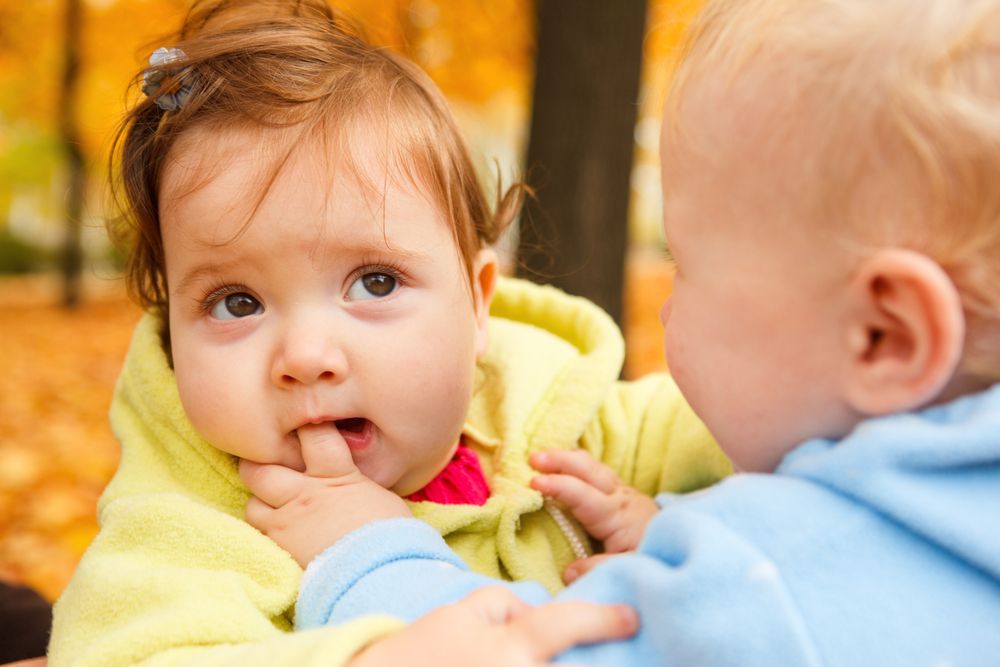What to do if your child is bitten in child care
Published on Wednesday, 27 March 2019
Last updated on Tuesday, 31 December 2019

It's natural to feel worried, angry or accusatory if your child is bitten by another child in their early childhood service, the reality is that biting is common among young children and, to a degree, is considered normal toddler behaviour.
So, let's look at why young children bite and how to respond if this happens to your little one.
Why do children bite?
Young children are developing physically, cognitively and emotionally, and this means that biting can happen because they're:
- Teething
- Curious and/or exploring with their mouths
- Over-excited or over-stimulated
- Frustrated, stressed, tired or hungry
- Bored and/or seeking attention
- Feeling powerless
- Mimicking other children
- Learning self-control
Children under the age of three also have a limited understanding of how their actions affect others, so although biting is unpleasant and requires an appropriate response, it's also not unexpected in the child care setting.
What should you do if your child gets bitten?
If you think your youngster has been bitten, or your child care provider confirms that this has happened, the best thing is to work with your centre to manage the situation as quickly and effectively as possible.
As a parent, you should:
Respond calmly: You may be angry at the biter, worried about your child and tempted to blame the child care provider for insufficient supervision, but focus on remaining calm. Remember that biting can happen quickly and without warning, so it's not necessarily a sign of inadequate supervision by care-givers.
Provide comfort and care for your child: Being bitten can be painful, both emotionally and physically, so give your child plenty of hugs and soothing words, and make sure you clean the bite area well.
Communicate with your child care provider: Discuss what has happened, ask to read your service's biting policy, and work with your care-giver to understand biting and see how the situation is best managed moving forward.
Most likely, your early childhood service will have positive strategies in place to deal with biting, but if you are concerned about your child's safety or aren't happy with how your service has handled the situation, then there is the option of taking things further with a complaint.
How do early childhood services work to prevent biting?
'Well-being' and 'Communication' are two strands at the heart of the Te Whāriki early learning curriculum, so although there is no sure-fire way to stop biting, early childhood services are focused on keeping children safe from harm and helping them develop their communication skills.
To help prevent biting, early childhood educators consistently:
- Teach children which behaviours are acceptable and unacceptable
- Teach youngsters positive ways to interact and communicate with one another, and ways to reduce frustration
- Supervise and support children
- Identify biting triggers, and avoid or reduce these where possible
- Resolve conflicts between children before biting happens
How do early childhood services manage biting incidents?
If biting does occur, then your educator will adhere to the service's biting policy, and work with children and parents to manage the situation. In practice:
- They will let parents know that their child has bitten or been bitten, but not give out the name of any other child involved.
- They will follow the service's Positive Guidance or Behaviour Guidance policy, which involves focusing most of the attention on the bitten child and providing comfort and care to make them feel better.
- They will let the biter know that biting is unacceptable and encourage them to use words and/or gentle hands to communicate their feelings.
- In the case of a constant biter, educators will work with their parents to draft a specific behaviour guidance strategy. They'll look at what's causing the biting, how it may be prevented, and teach the child positive ways to engage with others.
- They will reassure parents that biting is normal behaviour in young children and that the centre is doing everything it can to reduce biting.
- They'll offer concerned parents written information about biting and provide the opportunity for parents to discuss things further if needed.
The takeaway from all this is that although biting isn't nice, it can be a normal phase young children go through.
You're encouraged to keep the lines of communication open with both your child and your early childhood service. And to learn more about biting, read our article on Successfully Dealing With A Child Who Bites.
References
Kidz Corner and Childspace
Related Articles

Resilience lessons for early childhood
Supporting the development of resilience to improve the mental and physical wellbeing of children.

Supporting children to thrive in care
Whether your little one launches into child care without looking back or struggles with separation anxiety at drop-off time, it's important to support them in care.

7 life skills that will help your child succeed
The skills that will help your child thrive in their current and future lives; and how you can nurture these skills in your youngster's day-to-day activities.
